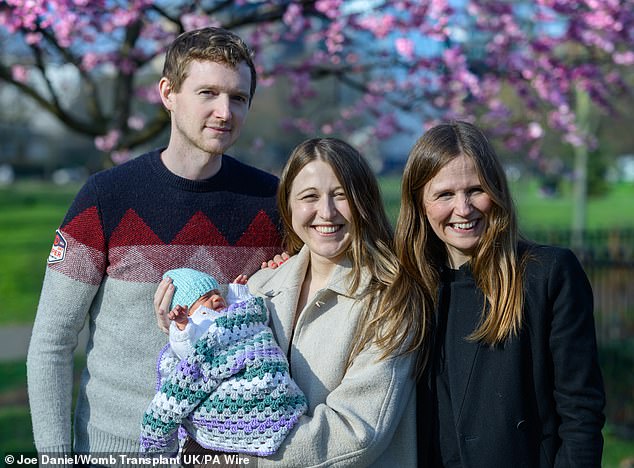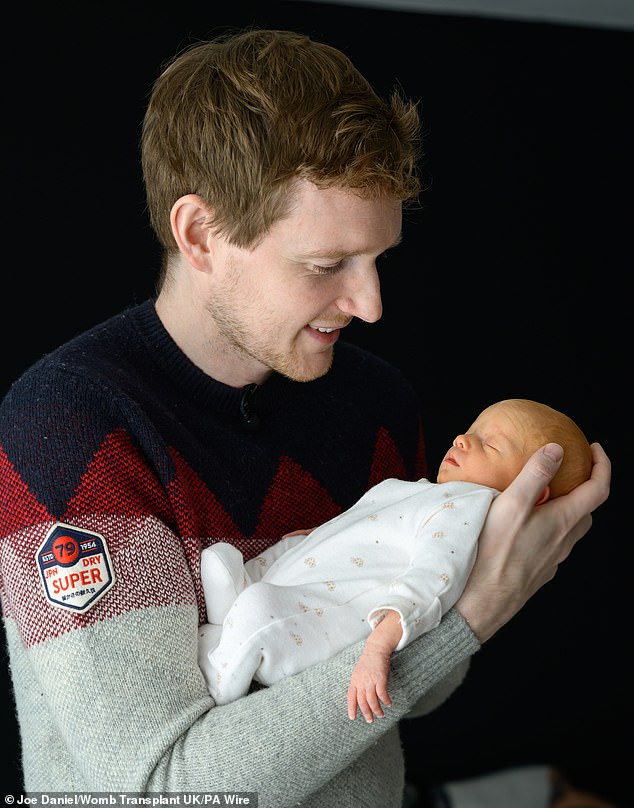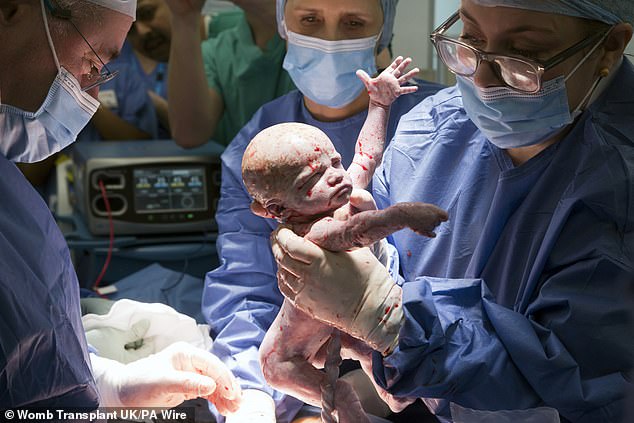The surgeons responsible for a landmark womb transplant have ruled out conducting the same procedure for trans patients.
Grace Davidson, 36, and husband Angus, 37, welcomed Amy Isabel into the world earlier this year after the UK’s first successful womb transplant.
Mrs Davidson, who was born without a womb, received the transplant from her sister Amy Purdie, and now thousands more women could benefit from the medical breakthrough.
But Scots gynaecological surgeon Professor Richard Smith, and transplant surgeon Isabel Quiroga, who were behind Mrs Davidson’s transplant, said the research is nowhere near ready for trans patients.
Professor Smith, who told how ‘the whole project is about the creation of babies’, said: ‘It’s really important to be clear about what we’re trying to do, which is relief of suffering for women who have got no womb, or they’ve got a womb which is incapable of reproduction.’
And Ms Quiroga said: ‘The only function of a uterus is to gestate and the uterus doesn’t make any hormones, it doesn’t do anything – it only gives the capacity of a woman to carry her own child.
‘So that’s why we are not proposing to transplant anybody so they feel… a sense of being complete or complete psychologically or just to have a uterus itself, because the risks in the long term with immunosuppression and everything that entails is quite great.’
Many in the trans community have hoped for the possibility of womb transplants for trans women – those who were born men but identify as female.

Grace Davidson (M) and husband Angus (L) welcomed Amy Isabel into the world earlier this year after the UK’s first successful womb transplant, donated by Grace’s sister Amy Purdie (R)

The procedure marked the UK’s first successful womb transplant (Pictured: father Angus holds his newborn baby girl)

But the surgeons responsible for a landmark womb transplant have ruled out conducting the same procedure for trans patients (Pictured: The birth of baby Amy)
But research shows that women born without a womb or vagina, and who have a surgically created neo-vagina, tend to have miscarriages.
Professor Smith told The Times: ‘On top of that, while we’re well aware no one is having a normal vaginal delivery, there are issues with respect to private anatomy.
‘We have a lot of supporting structures in a female pelvis – where are you going to hook a uterus when we stitch one in a male pelvis?
‘I have seen this raised false expectation but my own belief is that this is ten to 20 years away at least.
‘There may be somebody who wants to be a renegade and be a real hero but that’s not our scene at all in any way. We are not currently doing any work in this area because we’ve got far too much to do.’
Professor Smith’s charity Womb Transplant UK has permission to conduct 15 womb transplants – five from living donors and ten from deceased donors.
It means it can carry out four more using live donors and seven more using deceased donors. The breakthrough could potentially benefit thousands of women in the UK.
Around 15,000 have Mrs Davidson’s MRKH syndrome and many other women need their wombs removed because of conditions such as endometriosis or cancer. Until now such women wanting a family had to use a surrogate or adoption.
Share or comment on this article:
Surgeons behind landmark womb transplant rule out operation for trans patients